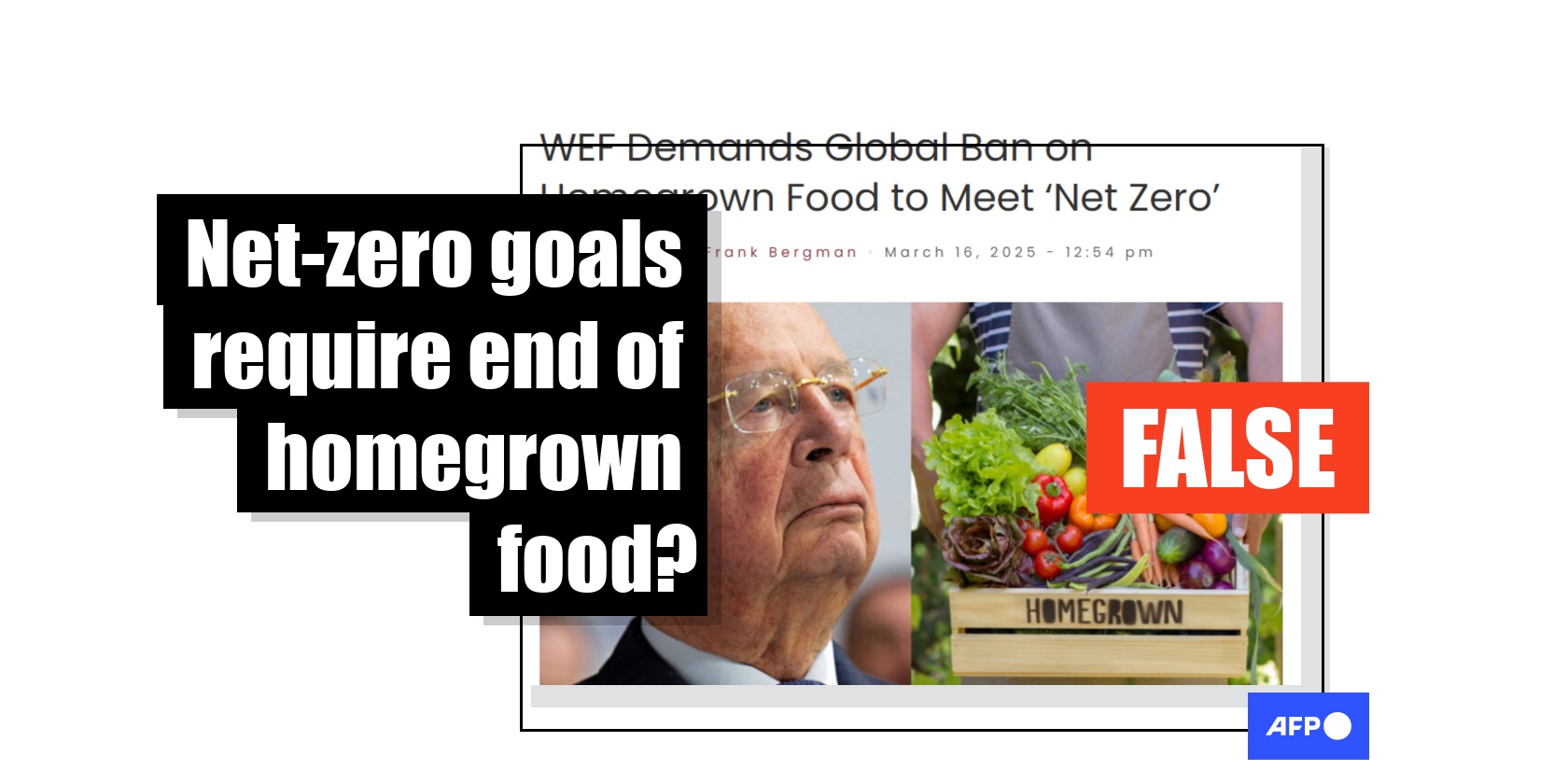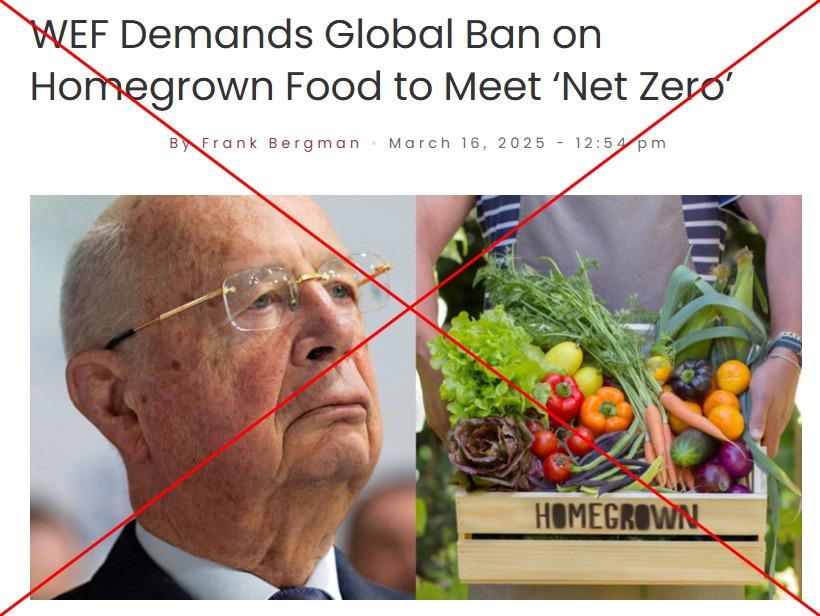
WEF did not call for ban on backyard farming
- Published on March 26, 2025 at 16:23
- 2 min read
- By Daniel Patrick GALGANO, AFP USA
"WEF Demands Global Ban on Homegrown Food to Meet 'Net Zero,'" says the headline of a March 16, 2025 article from Slay News, a website that has repeatedly shared misinformation.

The article and its headline spread across platforms such as X, Facebook, Instagram, Threads and TikTok -- and also in various languages, including French, Russian, Turkish and Vietnamese.
The WEF, an international organization that organizes an annual summit of business and political leaders in Davos, Switzerland, promotes research and collaborative efforts on environmental topics.
The institution and Schwab, its longtime chairman and founder, have frequently been the target of unfounded claims and conspiracy theories.
The Slay News article claims the WEF funded a January 2024 international study led by the University of Michigan (archived here). The research found that produce grown on small farms in urban areas can leave a carbon footprint an average of six times larger than crops from traditional farms (archived here).
But contacted by AFP, the WEF said the organization had no role in the research and has never endorsed countries banning home gardens.
"Regarding the study from the University of Michigan, while it certainly provides valuable insights into the climate impacts of urban agriculture, the World Economic Forum had not been involved in this study and has also not funded it," the organization said in a March 24, 2025 email.
In a press release about the study's findings, the University of Michigan credits several organizations with supporting the project, including the German Federal Ministry for Education and Research and the US National Science Foundation. It does not mention the WEF.
The study's co-lead author, Jake Hawes, now an assistant professor at the University of Wyoming, told AFP the WEF played no role in it (archived here and here).
Improve urban farming
Hawes said the paper's findings do not support banning home gardens but instead provide recommendations for improving urban agriculture.
"Many of the authors are gardeners ourselves, and we fully support the expansion of urban agriculture initiatives that are vital to community resilience and food security," Hawes said in a March 19 email.
"We suspect that particular conspiracy theory emerged from the fact that this study was part of a project called 'Food-Energy-Water Meter' or 'FEW-meter,'" he said, creating an acronym using the same three letters as the WEF.
The University of Michigan uploaded a video in which Hawes and another researcher show examples of urban or backyard farms and discuss best practices for sustainability revealed by their study, highlighting the lower carbon footprint of locally grown tomatoes (archived here).
The WEF has repeatedly published information about the environmental and economic benefits of setting up small household and community gardens for food production (archived here, here and here).
AFP has debunked other false claims about climate policy here.
Copyright © AFP 2017-2026. Any commercial use of this content requires a subscription. Click here to find out more.
Is there content that you would like AFP to fact-check? Get in touch.
Contact us




